CHEA Phal
Senior Research Fellow
Dr Chea Phal is currently the Senior Research Fellow at the Centre for Educational Research and Innovation. He has previously worked as a consultant for the World Bank, a research fellow at Kobe University, and an adjunct researcher at the Research Institute for Economics and Business Administration (RIEB), Japan. He holds a Master's and PhD in economics of education from the Graduate School of International Cooperation Studies, Kobe University, Japan. He has been actively involved in joint projects between UNESCO Bangkok and Kobe University, conducting various educational research projects in Cambodia. His research interests encompass economics of education, education finance, higher education, learning assessment, and field experiments. He has authored and co-authored numerous scientific papers, including those indexed in the Web of Science and Scopus databases.
Email : phalchea@cdri.org.kh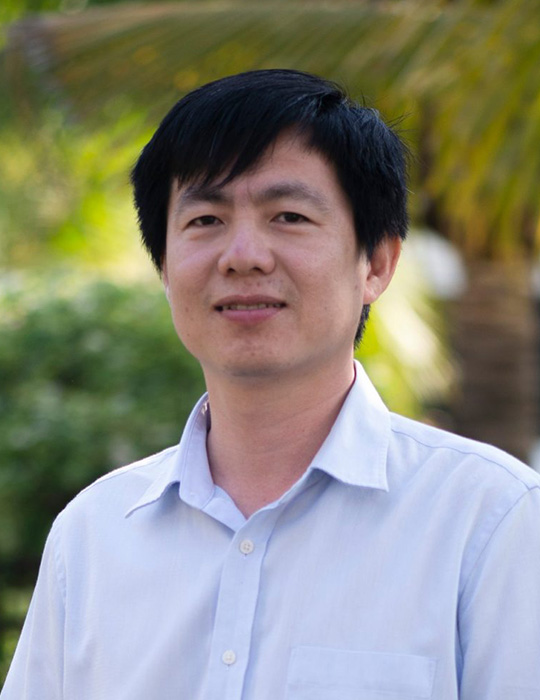

This study investigates the emerging reversal of gender gaps in Cambodian education, where girls now outperform boys in enrolment and learning outcomes at primary and lower secondary levels. Drawing on quantitative data from SEA-PLM and PISA-D assessments and qualitative insights from key informant interviews, the research explores national policie...
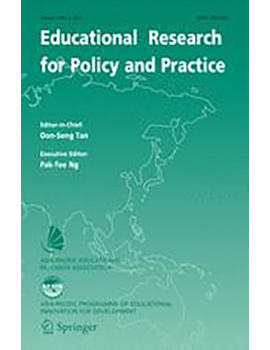
This study aims to investigate the characteristics of students who switch versus those who do not switch when they transition from upper secondary to higher education. The data from 1338 students randomly selected from 21 HEIs in Cambodia in 2020 found that upper secondary school students are more likely than not to switch academic majors when they...
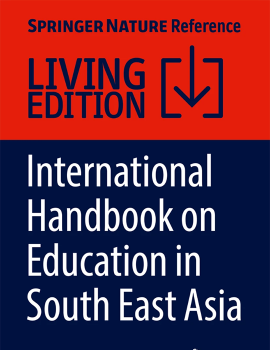
The Royal Government of Cambodia acknowledges the vital role of technical and vocational education and training (TVET) in developing a high-quality workforce to better respond to labor market demand and contribute to the national development agenda. In the past decade, with support from and collaboration with development partners, the Government ha...
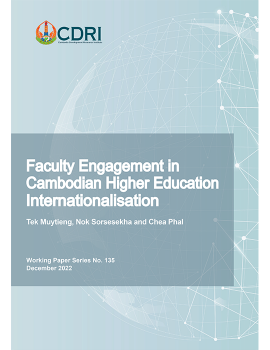
This study investigates the engagement of faculty members in the internationalisation of Cambodian higher education institutions (HEIs). Drawing on qualitative data from interviews with 49 faculty members and university administrators across eight HEIs, the research explores faculty attitudes, participation in internationalisation activities, and i...

While digital transformation around the globe has significantly gained momentum and speed, embracing technologies in our daily life is now beyond question. In this regard, we need to ask whether or not individuals are ready to accept and use technologies when provided and what really affects one's technology readiness. The main objective of this st...
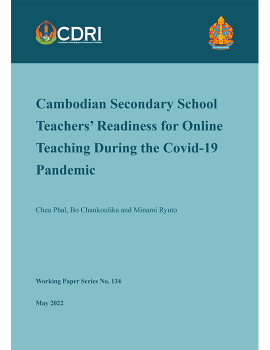
This study investigates Cambodian secondary school teachers’ readiness for online teaching during the COVID-19 pandemic and identifies factors influencing their technological preparedness. Drawing on survey data from 687 teachers across 43 schools in 10 provinces, the study applies descriptive statistics and regression analysis using the Technologi...
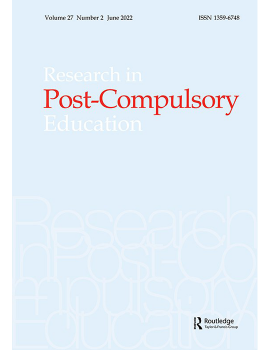
This study intends to identify existing permeability pathways between post-secondary education and training in Cambodia and to highlight hindrances that hamper the smooth permeability between the two systems. Adopting a hybrid process, the study combines both inductive and deductive thematic analysis approaches in coding transcribed interviews at 1...
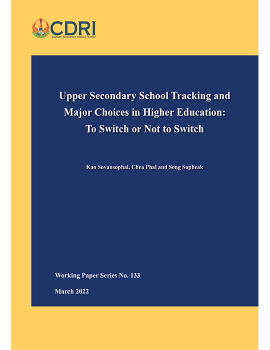
This study explores the phenomenon of academic major switching among Cambodian students transitioning from upper secondary school to higher education. Despite a high proportion of students enrolling in the science track at secondary level, only a minority pursue STEM majors at university. Using survey data from 1,338 students across 21 higher educa...
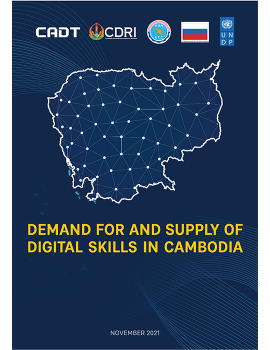
The study assesses current and future demand for and supply of digital and ICT skills and investigates the challenges firms of all sizes, universities, and TVET institutions face in preparing themselves and their students for digital technology adoption under the framework of the Fourth Industrial Revolution (4IR). A mixed-methods approach of quant...
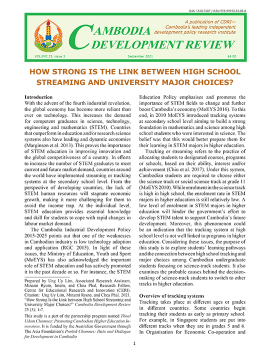
The purposes of this study are to explore learning pathways when students transit from high school to higher education among Cambodian students and examine the probable causes behind their decision to switch academic majors. The study found that about half of surveyed students switched their academic majors. Virtually all the switchers are science-...

Under the Capacity Building Research and Development Fund of the Ministry of Posts and Telecommunications, United Nation Development Programme, Cambodia and the Russian Federation, the Cambodia Development Resource Institute in collaboration with the Cambodia Academy of Digital Technology (formerly known as the National Institute of Posts, Telecoms...
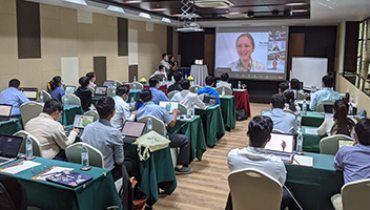
This three-year programme is supported by the Australian Department of Foreign Affairs and Trade (DFAT) through The Asia Foundation (TAF)’s Ponlok Chomnes Programme: Data and Dialogue for Development in Cambodia. In this programme CDRI aims at strengthening the capacity of knowledge-sector institutions to undertake quality research, informing publi...
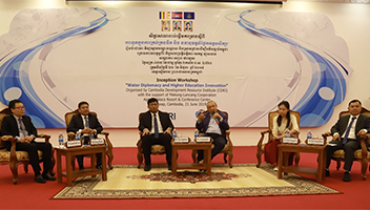
With a steady economic growth hovering between 7-8 percent over the past two decades, Cambodia achieved a lower-middle-income in 2015. Building on this progress, the government aspires to become an upper-middle-income country by 2030 and a high-income country by 2050. Several key issues need to be urgently addressed if Cambodia is to realise the a...
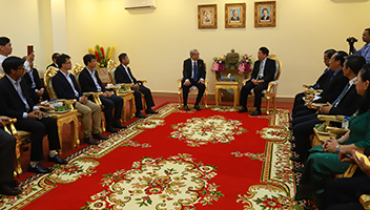
Cambodia has achieved strong growth in the past two decades, and the country has graduated to lower-middle-income status with a per capita income of about USD1,215 (2015). A feat that neighbouring Vietnam achieved in 2010 and Laos in 2011. Building on this achievement, Cambodia aspires to become an upper-middle-income country by 2030 and a high-inc...
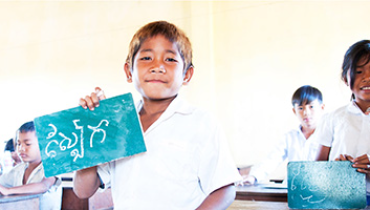
A five-year project called ‘Education Research for Effective Policy Reforms’ with a total funding of USD446,713 aims to produce independent, objective, high quality policy-relevant higher education research, and to maximise the accessibility of this knowledge to policymakers, influencers and stakeholders, and its policy impact. This project also wo...
